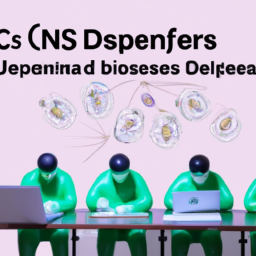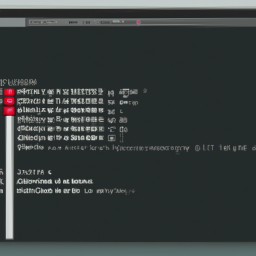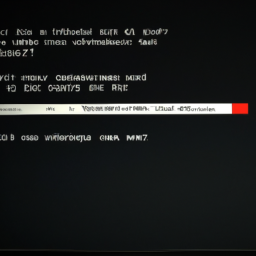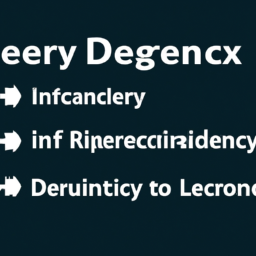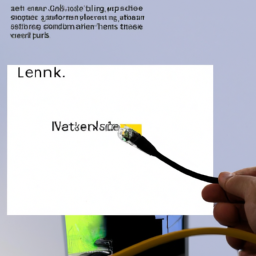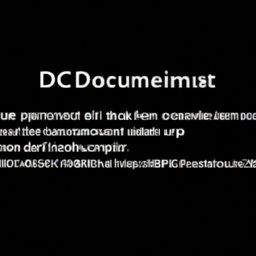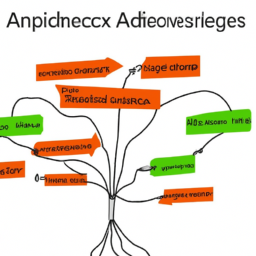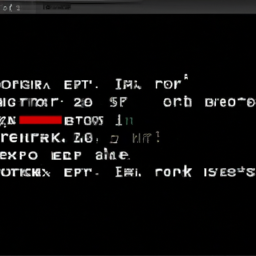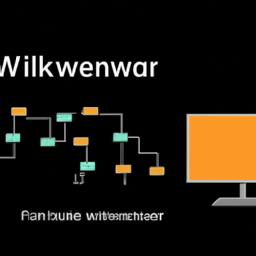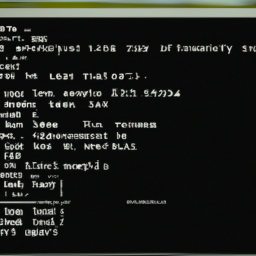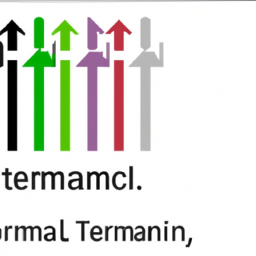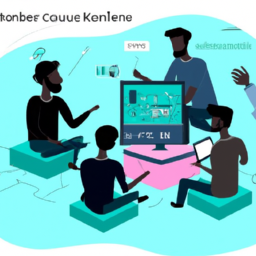Are you ready to take your Node.js skills to the next level? Look no further than the OpenJS Node.js Services Developer (Chinese Version) Exam.
This comprehensive exam covers 10 crucial topics that every aspiring Node.js developer should master.
From event-driven architecture to asynchronous programming, this exam will put your knowledge to the test.
You’ll dive deep into the Node.js module system, learn debugging techniques, and gain real-world scenario implementation skills.
This exam is designed to assess your proficiency in Node.js development and ensure you have a solid understanding of the key concepts and techniques.
So, whether you’re looking to advance your career or simply want to validate your skills, the OpenJS Node.js Services Developer (Chinese Version) Exam is the perfect opportunity to prove your expertise.
Get ready to excel in the world of Node.js development!
Key Takeaways
- The OpenJS Node.js Services Developer (Chinese Version) Exam covers 10 crucial topics in Node.js development.
- Event-driven architecture allows efficient communication and coordination between different components.
- Asynchronous programming in Node.js allows tasks to be performed without blocking other functions.
- Performance optimization and security considerations are key aspects of Node.js development.
Event-Driven Architecture
The Event-Driven Architecture allows the flow of data to dance gracefully between different components like a synchronized ballet. In event-driven programming, the system responds to events triggered by user actions or system events. These events could be anything from a button click to a sensor reading.
Event-driven systems are designed to handle these events efficiently, allowing for effective communication and coordination between different components. This architecture promotes loose coupling and scalability, as components can work independently and be added or removed easily.
Transitioning to the next section about asynchronous programming, it’s important to note that event-driven architecture often utilizes asynchronous programming techniques to handle events efficiently and avoid blocking the main thread.
Asynchronous Programming
Ironically, asynchronous programming in the OpenJS Node.js Services Developer exam will make your head spin.
Asynchronous programming is a crucial concept in Node.js, allowing you to perform tasks without blocking the execution of other functions. One of the key components of asynchronous programming is the use of callback functions. These functions are passed as arguments to other functions and are executed when a certain event occurs. They allow you to handle the result of an asynchronous operation once it’s completed.
Another approach to asynchronous programming is through promise handling. Promises provide a cleaner and more organized way of working with asynchronous code, allowing you to chain multiple operations together and handle errors more efficiently.
Understanding these concepts will greatly enhance your ability to develop efficient and scalable Node.js applications.
Moving on to the next section about the ‘node.js module system’, you’ll discover how to leverage the power of modular programming.
Node.js Module System
Get ready to dive into the Node.js module system and unlock the power of modular programming for building efficient and scalable applications.
In Node.js, there are two main module systems: CommonJS and ES modules. CommonJS is the traditional module system used in Node.js, while ES modules are the newer standard introduced in ECMAScript 6. Understanding the differences between these two systems is crucial for effective dependency management in Node.js.
CommonJS modules use the require() function to import modules and the module.exports object to export functions or variables. On the other hand, ES modules use the import and export keywords for importing and exporting modules respectively.
Knowing how to manage dependencies using these module systems will greatly enhance your ability to create maintainable and reusable code.
Now, let’s transition to the next section about debugging techniques.
Debugging Techniques
Let’s dive into the world of debugging techniques and discover the secret weapons that’ll help you unravel the tangled web of bugs in your code.
Here are three essential techniques to enhance your debugging skills:
-
Advanced Breakpoints: Utilize advanced breakpoint features to pause the execution of your code at specific lines or conditions. This allows you to inspect variables and step through the code, gaining deeper insights into the issue at hand.
-
Remote Debugging: With remote debugging, you can debug your Node.js applications running on remote servers. This powerful technique enables you to diagnose and fix issues in real-time, regardless of the physical location of your code.
-
Logging and Tracing: Implement comprehensive logging and tracing mechanisms in your code to track the flow of execution and identify potential problem areas. This valuable technique helps you capture crucial information and analyze it later for debugging purposes.
Now, let’s explore how to implement these techniques in real-world scenarios without missing a beat.
Real-World Scenario Implementation
Fortunately, implementing these debugging techniques in real-world scenarios is a breeze, allowing you to unravel the mysteries of bugs in your code with ease.
However, there are some implementation challenges that you may encounter along the way. One of the challenges is identifying the root cause of the issue, especially when the bug is caused by complex interactions between different components.
Another challenge is ensuring that the debugging process doesn’t negatively impact the performance of your application. This requires a delicate balance between thoroughness and efficiency.
Additionally, implementing these techniques also provides an opportunity for performance optimization. By analyzing and fixing bugs, you can identify areas of your code that can be optimized for better performance.
This proficiency in node.js development will enable you to create more robust and efficient applications.
Proficiency in Node.js Development
To truly master Node.js development, you must dive deep into its intricacies and become a coding wizard, conjuring up powerful and efficient applications with ease. Here are five crucial aspects to focus on in order to excel in Node.js development:
-
Performance optimization: Learn how to optimize your code to maximize speed and efficiency. Techniques such as caching, using asynchronous functions, and minimizing blocking operations can greatly enhance your application’s performance.
-
Security considerations: Understand the potential security vulnerabilities in Node.js applications and learn how to implement proper security measures. This includes handling user input securely, preventing common security threats like cross-site scripting (XSS) and SQL injection, and ensuring data privacy.
By mastering these aspects, you can create high-performance and secure Node.js applications that will impress both clients and users.
Frequently Asked Questions
How does the OpenJS Node.js Services Developer Exam evaluate knowledge of event-driven architecture?
To evaluate your knowledge of event-driven architecture, the OpenJS Node.js Services Developer exam tests your understanding of how event-driven systems work and your ability to write code using asynchronous programming techniques.
This includes knowing how to handle and emit events, use callbacks and promises, and work with non-blocking I/O operations. Demonstrating proficiency in these areas will show that you have a strong understanding of event-driven architecture and its application in Node.js services development.
What are some common challenges faced when working with asynchronous programming in Node.js?
When working with asynchronous programming in Node.js, you may face common challenges such as error handling. Asynchrony can make it difficult to manage errors, as they may occur at different points in the code. Properly handling errors and ensuring they’re not overlooked is crucial.
Additionally, dealing with callback hell, where code becomes nested and hard to read, is another challenge. It’s important to use techniques like Promises or async/await to improve code readability and maintainability.
How does the Node.js module system facilitate code organization and reusability?
The node.js module system greatly aids in code organization and reusability. By allowing you to break your code into separate modules, it becomes easier to manage and maintain your codebase. You can group related functions and variables together, making it more organized and readable.
Additionally, modules can be reused in different parts of your application or even in other projects, saving time and effort. This promotes code reusability, leading to more efficient and scalable development.
What are some best practices for debugging Node.js applications?
To effectively debug Node.js applications, there are several best practices you can follow.
First, utilize the built-in debugging capabilities such as the Node.js debugger and console.log statements.
Additionally, use debugging tools like Chrome DevTools and Node.js Inspector for more advanced debugging.
It’s also important to understand asynchronous programming and handle errors properly.
Finally, leverage logging and monitoring tools to gain insights into application performance and identify potential issues.
Can you provide an example of a real-world scenario where Node.js is commonly implemented and explain its benefits in that context?
Imagine you’re a chef in a busy restaurant, juggling multiple orders at once. In the real world, Node.js is like having a team of sous chefs who can handle each order simultaneously.
One common scenario where Node.js is implemented is in building real-time chat applications. Its event-driven architecture allows for seamless communication between clients and servers, resulting in faster and more efficient messaging.
This benefits businesses by providing instant and responsive communication, enhancing user experience, and increasing customer satisfaction.
Conclusion
Congratulations! You’ve embarked on a journey through the OpenJS Node.js Services Developer (Chinese Version) exam. You’ll explore 10 crucial topics. Just like a skilled sailor navigating uncharted waters, you’ve learned about event-driven architecture. You’ve also mastered the art of asynchronous programming and delved into the depths of the Node.js module system.
Armed with debugging techniques, you’re now ready to tackle real-world scenario implementation. Your proficiency in Node.js development has reached new heights, like an eagle soaring fearlessly through the skies.
Keep spreading your wings and embracing the limitless possibilities of this powerful technology.











